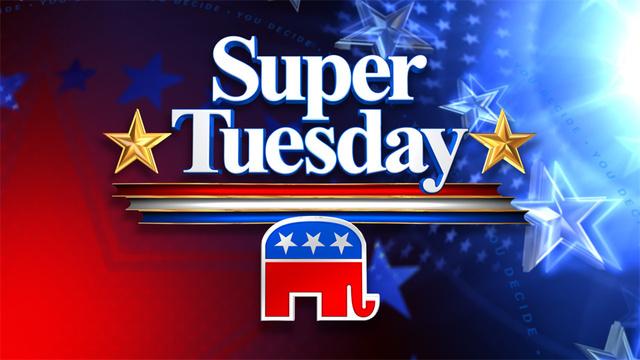Super Tuesday: Winners and Losers
March 3, 2016
Voters in 14 states cast their ballots or caucused on Tuesday, March 1, also known as Super Tuesday with Donald Trump and Hillary Clinton chalking up clear victories. voted in their primaries and caucuses for their preferred party nominees. This day is always significant because of the number of states voting and number of delegates awarded. Now that the results are in, the election seems a bit clearer.
Winners:
Hillary Clinton. Clinton was expected to do well in the Super Tuesday states, and her Southern firewall held. With a significant delegate lead, and even larger one with superdelegates factored in, Clinton has once again summoned the air of inevitability that was once challenged by Senator Sanders. Interestingly, she has won states and regions that she lost by large margins to former Senator Barack Obama in 2008; 8 years later, the African American vote has consolidated around her and despite run-ins with the Black Lives Matter movement, the African American communities and leaders have flexed their collective muscle to push her into a large delegate lead.
Donald Trump. Trump won 7 out of 11 states on Super Tuesday and has accrued a 100 delegate lead over second place rival Senator Ted Cruz with 334 delegates to his 216. However, Trump was thought to have a chance to win every state on Super Tuesday, yet he ended up losing 4. Trump underperformed in Oklahoma, where he was beaten by Cruz, who was down 20 percent in polls prior to election day. But nevertheless, the FiveThirtyEight delegate targets show that he has exceeded his target with 112 percent of the delegates he would need to be “on the path” to the nomination, while his colleagues are far behind their targets. Furthermore, Trump is about to head into Florida and Ohio, the winner-take-all home states of his competitors, where he leads them in the polls. The media, the establishment, and the people are starting to realize that Trump is the likely nominee, and betting markets have him at an 81% chance of seizing the nomination.
Governor John Kasich. Kasich did well tonight in relation to his expectations. He netted a close second in Vermont and challenged Rubio for second in Virginia. Of course, Kasich hasn’t actually won anywhere, and doesn’t seem likely to do so anytime soon, so consider him a winner with a grain of salt.
Losers
Senator Bernie Sanders. Sanders did win 4 states, but by slim margins, and they were insignificant in terms of delegate totals. Despite outspending Clinton in the South, he was unable to make inroads with African Americans, who made up the majority of the electorate. Sanders fans, are, of course, upset at this, considering Sanders lived through and participated in the original civil rights movement, where he was once even arrested for protesting. Because all Democratic contests allocate their delegates proportionally, Sanders would need nothing less than a miracle to overcome the pledged delegate and superdelegate lead Clinton has accrued.
Senator Marco Rubio. Rubio has tried to make a case about electability, but that seems hard to get across if he can’t even get elected among Republicans. Rubio did, however, win his first state, putting up a strong finish in the Minnesota caucuses, where Trump did his worst, coming in third. As analysts conclude that the only way for Trump not to be the nominee at this point is a two man race, Rubio feels the pressure to drop out after a disappointing night, but he and his campaign insist that their best states are yet to come and that they are in the race all the way until the convention.
Senator Ted Cruz. Despite winning four states including his home state of Texas and outdoing expectations in Oklahoma, Ted Cruz walks away a loser tonight. Months ago, Super Tuesday was supposed to be his “Southern firewall”, one that has failed him. The states that voted on Super Tuesday had the most evangelical and the most conservative voters, but Trump won 7 states to his 3. Cruz is weak outside of his lane, meaning his prospects seem to get dimmer moving to the rest of the country. And if Cruz can’t win big on Super Tuesday, then it doesn’t seem feasible for him to win big anywhere else, at least big enough to shake Trump.
Ben Carson. Carson’s campaign is, at this point, a mystery, because unlike his opponents, who themselves have only a small chance against the Trump juggernaut, Carson has no chance at all. He has no states that he is set to do well in, and he has placed last in every single Super Tuesday contest. Carson seems indecisive, saying that “he’s not going anywhere” and refusing to formally suspend his campaign, while stating that he sees no way forward and saying that he will not attend the next debate. Carson might be staying in for book sales, for publicity, or maybe just for fun, but it’s about time to forget about Ben Carson.
















